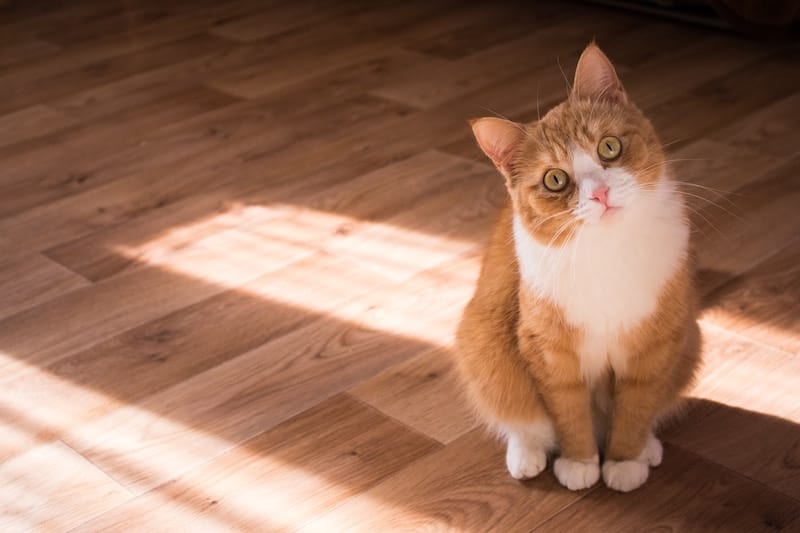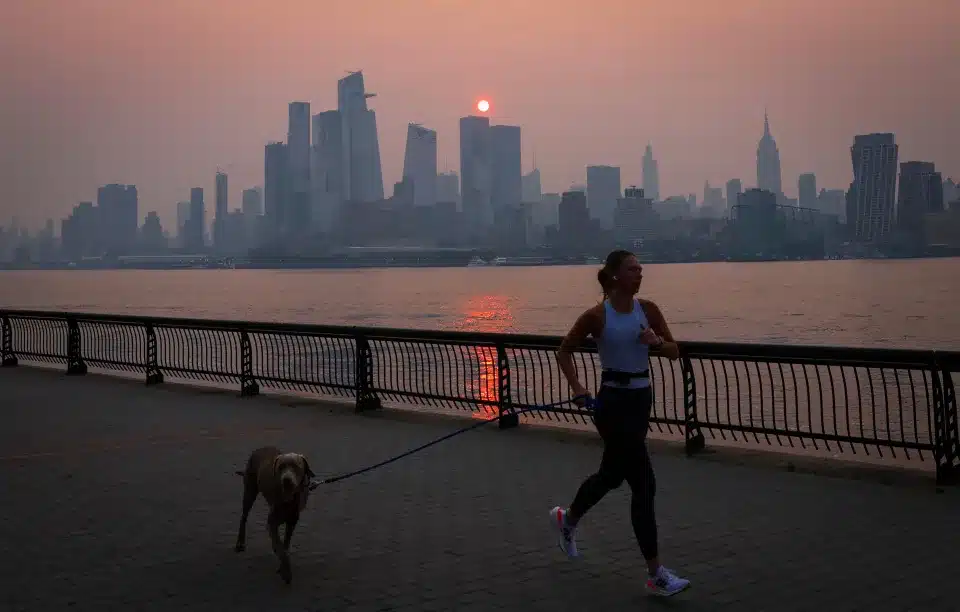Canadian wildfires have caused air quality alerts in the Northeastern U.S., especially in New York City. But what about our furry and feathered companions?
When we feel the effects of smoke, our pets are likely experiencing them too, according to experts. The American Veterinary Medical Association (AVMA) states that if your pet shows any of these symptoms, it’s time to contact your vet:
- Coughing or difficulty breathing
- Irritated, red, or watery eyes
- Fatigue or disorientation
- Lack of appetite or reduced thirst
Birds are especially vulnerable, while brachycephalic cat breeds like Himalayans, Exotic Shorthairs, and Persians, as well as kittens and older cats, have a higher risk of being affected by smoke inhalation.
So, how can we protect our pets from wildfire smoke? The best approach, according to experts, is to keep them indoors.

While we all have our daily routines and responsibilities, it’s crucial to prioritize the well-being of ourselves, our families, and our pets during wildfire episodes. William Barrett, national senior director of clean air advocacy with the American Lung Association, suggests limiting outdoor time and seeking clean indoor spaces as much as possible. This advice comes from his own experience with month-long wildfire episodes in California, as shared with Yahoo News reporter Marquise Francis.
The AVMA offers the following recommendations:
- Keep windows and doors closed.
- Keep pets indoors as much as possible. Allow cats and dogs outside only for quick bathroom breaks while air quality alerts are in effect.
- Avoid heavy outdoor exercise for pets until smoke and dust have settled.
To maintain clean indoor air, the Centers for Disease Control and Prevention (CDC) suggests avoiding activities like frying foods, burning candles, smoking, or anything that could introduce particles into your home.
While high-quality filtration masks like N95s can protect humans from fine particles in wildfire smoke, the CDC and AVMA advise against using masks on pets. Despite increased pet mask sales during the COVID-19 pandemic, masks can cause distress and breathing difficulties for animals.














